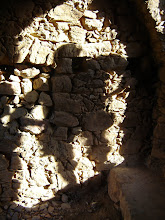My year hasn’t started tremendously auspiciously. After spending two weeks in the UK, on the way back across the North Sea, I must have picked up an ear infection which has rendered me temporarily hearing-impaired. I’ve never worn a diving helmet before, but I’m slowly beginning to realise what it might be like to don one: the voices I hear just seem to reverberate unintelligibly off an invisible shield around my head. So last week, there seemed little point giving my normal English lessons at the Volksuniversiteit and having students’ questions literally fall on deaf ears. The next morning there was an envelope jammed in the letterbox addressed personally to me. The heading on the photocopy it contained said ‘Pleurisy’. Oh dear I thought, not another illness I’d been diagnosed with. But reading on, I found the following:
We’ll begin with a box, and the plural is boxes,
But the plural of ox should be oxen, not oxes.
Then one fowl is a goose, but two are called geese,
Yet the plural of mouse should never be meese,
You may find a lone mouse or a whole nest of mice,
But the plural of house is houses, not hice.
But the plural of ox should be oxen, not oxes.
Then one fowl is a goose, but two are called geese,
Yet the plural of mouse should never be meese,
You may find a lone mouse or a whole nest of mice,
But the plural of house is houses, not hice.
If the plural of man is always called men,
Why shouldn’t the plural of pan be called pen?
The cow in the plural may be cows or kine,
But a bow if repeated is never called bine,
And the plural of vow is vows, never vine.
If I speak of a foot and you show me your feet,
And I give you a boot would a pair be called beet?
If one is a tooth, and a whole set are teeth,
Why shouldn’t the plural of booth be called beeth?
If the singular’s this and the plural is these,
Should the plural of kiss ever be nicknamed keese?
Then one may be that and three would be those,
Yet hat in the plural would never be hose,
And the plural of cat is cats, not cose.
Should the plural of kiss ever be nicknamed keese?
Then one may be that and three would be those,
Yet hat in the plural would never be hose,
And the plural of cat is cats, not cose.
We speak of a brother, and also of brethren,
But though we say mother, we never say methren,
Then the masculine pronouns are he, his and him,
But imagine the feminine she, shis and shim,
But though we say mother, we never say methren,
Then the masculine pronouns are he, his and him,
But imagine the feminine she, shis and shim,
So the English, I think, you all will agree,
Is the queerest language you ever did see.
Is the queerest language you ever did see.
The note had been sent by a concerned colleague, who had signed off with a Get Better Soon. And even though it didn’t manage to clear up my aural orifices, it did cheer me up. A kind gesture indeed!
So, if and when I’m able to doff my imaginary diving helmet, I will at least have something in store for my students next time …
For more information click here











